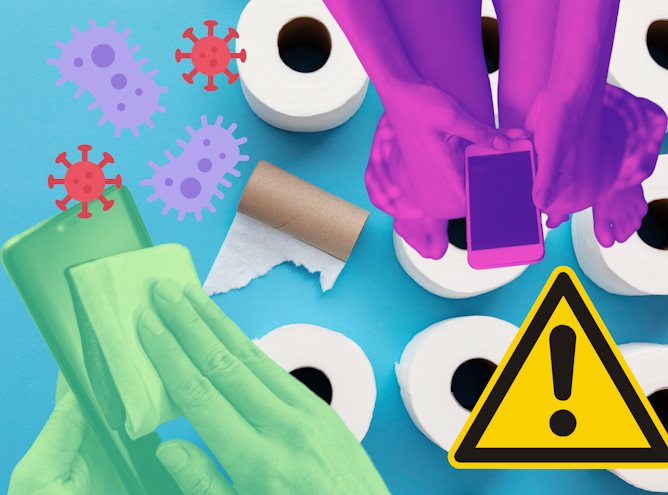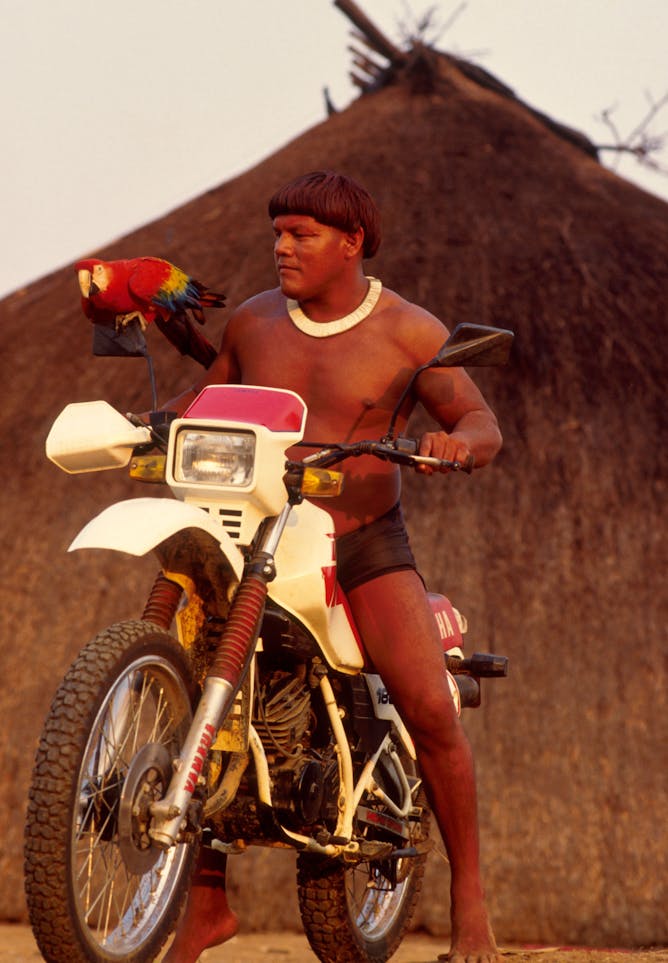|
If you’re reading this on your phone, you might want to just pause for a moment and think back to the last time (if ever) you cleaned your device. If you’ve got no idea when this was then prepare to be grossed out as we dive into the dirty world of mobile phone hygiene – and be warned it’s pretty grim.
It turns out our beloved mobiles are filthy – and I mean really disgusting – covered in all sorts of germs, bacteria and viruses, and are actually dirtier than a toilet seat. Though if you’re anything like the majority of British people who love a good scroll on the loo, maybe that won’t surprise you – and yes, your phone probably has faeces on it.
We touch our phones hundreds, if not thousands, of times a day, and while we may wash our hands after using the bathroom, cooking, or cleaning, we are much less likely to wash our hands after touching our phones. This means that we are constantly transferring germs and bacteria to our phones – yuck! Yup, it’s time to take mobile phone hygiene more seriously. Here’s what you need to know about filthy phones and how to clean them.
We also look at the huge motorbike boom that has swept across Indigenous South America. And how motorbikes have drastically changed Indigenous people’s lives: they are more than just a way to get around – they represent a sense of belonging and citizenship. In the Bolivian city of Riberalta, there is even a monument of a motorbike. But the arrival of motorbikes has also led to an increase in traffic accidents. Crashes involving motorbikes are now a leading cause
of death among Indigenous communities in South America.
Plus we learn how today’s protests against the pollution of Britain’s waterways have a long history. This is what environmental action looked like in the 17th century.
|

|
Holly Squire
Special Projects Editor
|
|

Using your phone when you’re on the toilet is a horrid habit.
Canva/Shutterstock
Primrose Freestone, University of Leicester
Your mobile phone is 10 times dirtier than a toilet seat. Here’s what to do about it.
|

Amazon rainforest, Brazil: a Yaulapiti man rides a motorcycle.
BrazilPhotos / Alamy Stock Photo
Diego Villar, Ca' Foscari University of Venice
It’s quite common to see whole Indigenous families on bikes – including pets and tiny children.
|

London imagined from above by artist Claes Jansz. Visscher, in 1616.
wiki
Daniel Gettings, University of Warwick
Even in a time with limited alternatives, polluted waterways were not simply accepted without complaint.
|
Politics + Society
|
-
Abier Hamidi, Bournemouth University
This researcher found that even in traditional Arab communities, social media is a better way of reaching people than using family networks.
|
|
Arts + Culture
|
-
Stefan Hanß, University of Manchester
In the 17th century, the mullet was written about with imperial and racist overtones.
-
Darcy White, Sheffield Hallam University
Yevonde was a celebrated portraitist, innovative colourist and advocate for women in the profession. In short, a pioneer.
|
|
Business + Economy
|
-
Will Harvey, University of Bristol
A reputation is worth safeguarding but not at all costs.
-
Eun Young (EY) Oh, University of Portsmouth
AI tools could help you to learn more about investing in shares and other financial markets – but it’s not a perfect solution.
|
|
Education
|
-
Lucy Kelly, University of Bristol
Keeping a diary can provide insight into both professional and private lives.
|
|
Environment
|
-
Kate Smith, University of Hull
Warnings can now be sent to everyone in a place likely to be flooded – not just those who opt-in.
|
|
Health
|
-
Evronia Azer, Coventry University; Carlos Ferreira, Coventry University; Maureen Meadows, Coventry University
The app will be discontinued on April 27, 2023.
-
Chantal Gautier, University of Westminster
Young people are more likely to consider some form of open or non-monogamous relationship.
|
|
|
|
|
|
| |
|
|
|
|
| |
| |
| |
| |
| |
|
|